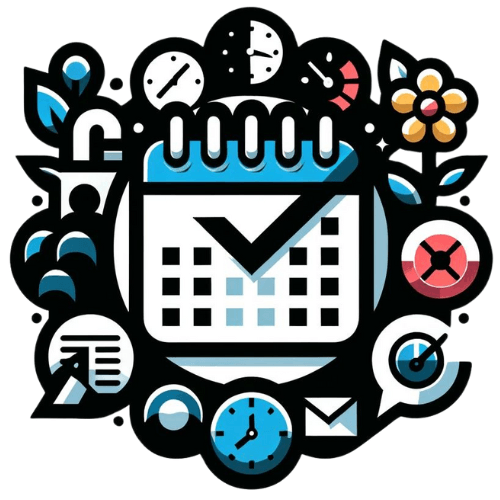7 Strategies to Prevent Burnout Through Sustainable Scheduling
In the quest for productivity, balance is key; this article reveals 7 proven strategies to prevent burnout through sustainable scheduling. With contributions from seasoned experts, readers will gain practical advice on how to prioritize tasks, time-block effectively, and incorporate much-needed mental health days into their routines. Discover how to transform your daily grind into a harmonious workflow that supports long-term success and well-being.
- Focus on Balance and Flexibility
- Prioritize and Time-Block Tasks
- Delegate to Increase Productivity
- Schedule Mental Health Days
- Organize Tasks with Time-Boxing
- Outsource Personal Chores
- Automate Repetitive Tasks
Focus on Balance and Flexibility
To ensure our scheduling process remains sustainable and avoids burnout, I focus on balance and flexibility. One key strategy is building in buffer time between tasks. This allows for any unforeseen delays or moments of rest, preventing the schedule from becoming too tight. We also prioritize tasks so that high-impact items are addressed first, and lighter tasks are spread throughout the day to avoid overload.
Transparency is another crucial approach. Everyone has visibility into each other's schedules, so if anyone is feeling overwhelmed, they can flag it early and we can redistribute tasks. I also encourage regular check-ins with the team to assess how they're handling workloads and adjust as necessary.
On a personal level, I practice setting boundaries for myself and encourage my team to do the same—whether that means having designated 'off hours' or instituting a 'no meetings' policy on certain days. These practices help maintain a healthier work-life balance and keep everyone energized.
By fostering open communication, maintaining flexibility, and promoting self-care, we keep our schedules manageable, ensuring long-term sustainability and avoiding burnout.

Prioritize and Time-Block Tasks
Maintaining a sustainable schedule really is just about prioritization and time-blocking. I eliminate distractions to focus on the work that matters most and has the largest impact, letting go of things that can be delegated or are not a high priority. I swear by time-blocking it enables me to create dedicated time for focused work, while also ensuring I have breaks to recharge.
In order to avoid burnout, I've learned to manage expectations, both mine and my team's. That means honest dialogue, transparency in what our objectives are, and being willing to say no to things that don't assist us with what we're aiming for. I also try to make my actual schedule a little flexible plans change, and being able to easily adapt to changes really helps with lowering stress levels. And on top of that, I always make sure to take care of myself. Sleep, exercise and time for self-improvement aren't just nice things to do they're necessities. This is something that I need to adopt and practice on and off, to ensure that I stay on a balanced wheel of work and life, and get through this while being productive along with enjoying the process.

Delegate to Increase Productivity
Handing off tasks to others when appropriate helps free up time and mental energy. It allows for focusing on high-priority items that require one’s unique skills. This can lead to increased productivity and job satisfaction.
It also fosters a collaborative environment where team members feel trusted and empowered. Make the effort to delegate today and notice the difference it brings to your schedule.
Schedule Mental Health Days
Setting aside time for mental health is crucial to maintaining a balanced life. Rest days allow for recovery and prevent the buildup of stress. Regularly scheduled breaks can improve overall well-being and productivity.
Making mental health days a priority signals their importance to oneself and others. Advocate for mental wellness and schedule your next mental health day.
Organize Tasks with Time-Boxing
Organizing similar tasks to be done within the same time frame can enhance focus and efficiency. This practice, known as time-boxing, helps prevent the constant shift from one type of task to another, thus conserving mental energy. It can make one feel accomplished by ticking off multiple tasks in a short period.
It also reduces the likelihood of errors caused by frequent task-switching. Try time-boxing tasks this week to see its positive effect on your workflow.
Outsource Personal Chores
Having someone else handle personal chores such as grocery shopping and house cleaning can save valuable time. This additional time can then be reallocated to rest or hobbies. Reducing the number of errands on one’s personal to-do list decreases overall stress.
It allows for more focus on professional duties and personal interests. Consider outsourcing some errands this month to lighten your load.
Automate Repetitive Tasks
Utilizing technology to automate repetitive tasks can greatly reduce daily workload. With tasks like email responses and schedule planning handled by automated systems, more attention can be given to creative and strategic activities. This not only saves time but also minimizes the likelihood of errors.
Moreover, automated systems can operate without supervision once set up. Explore automation tools to streamline your routine today.

